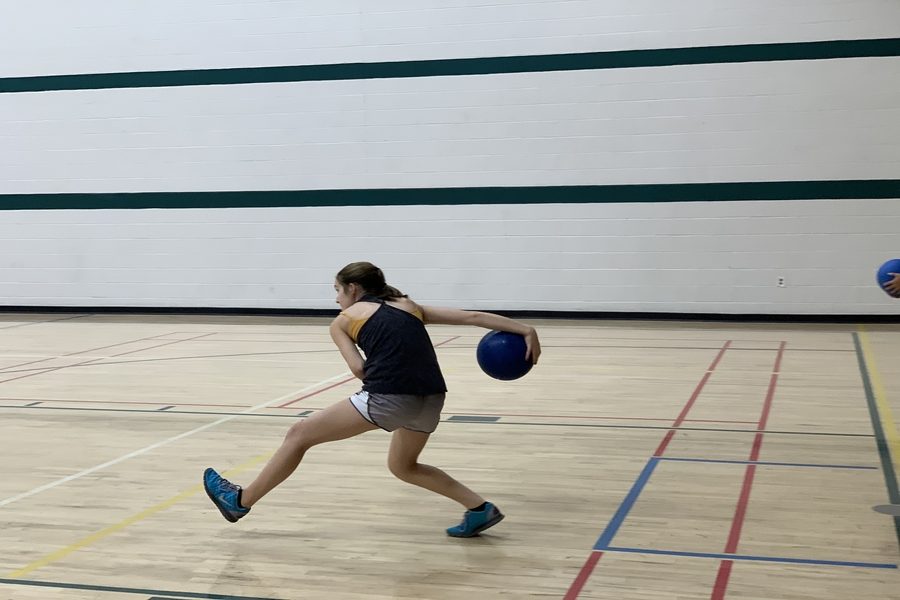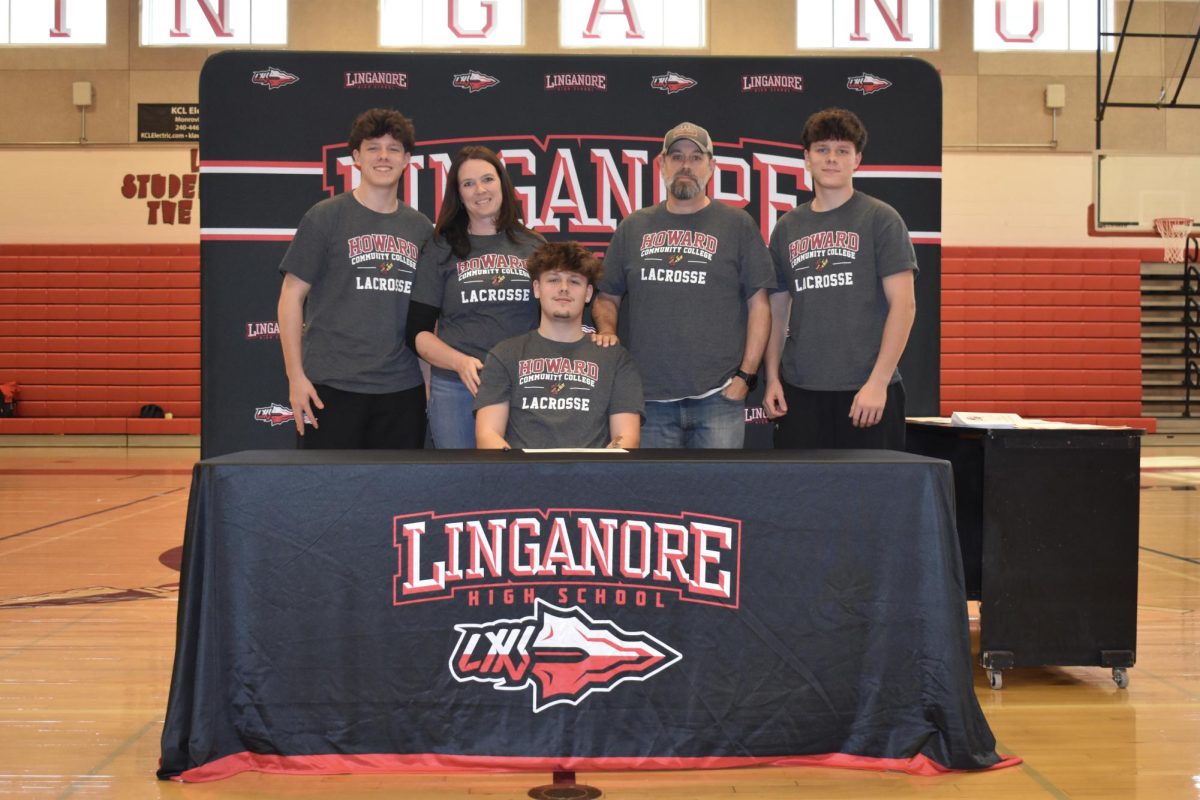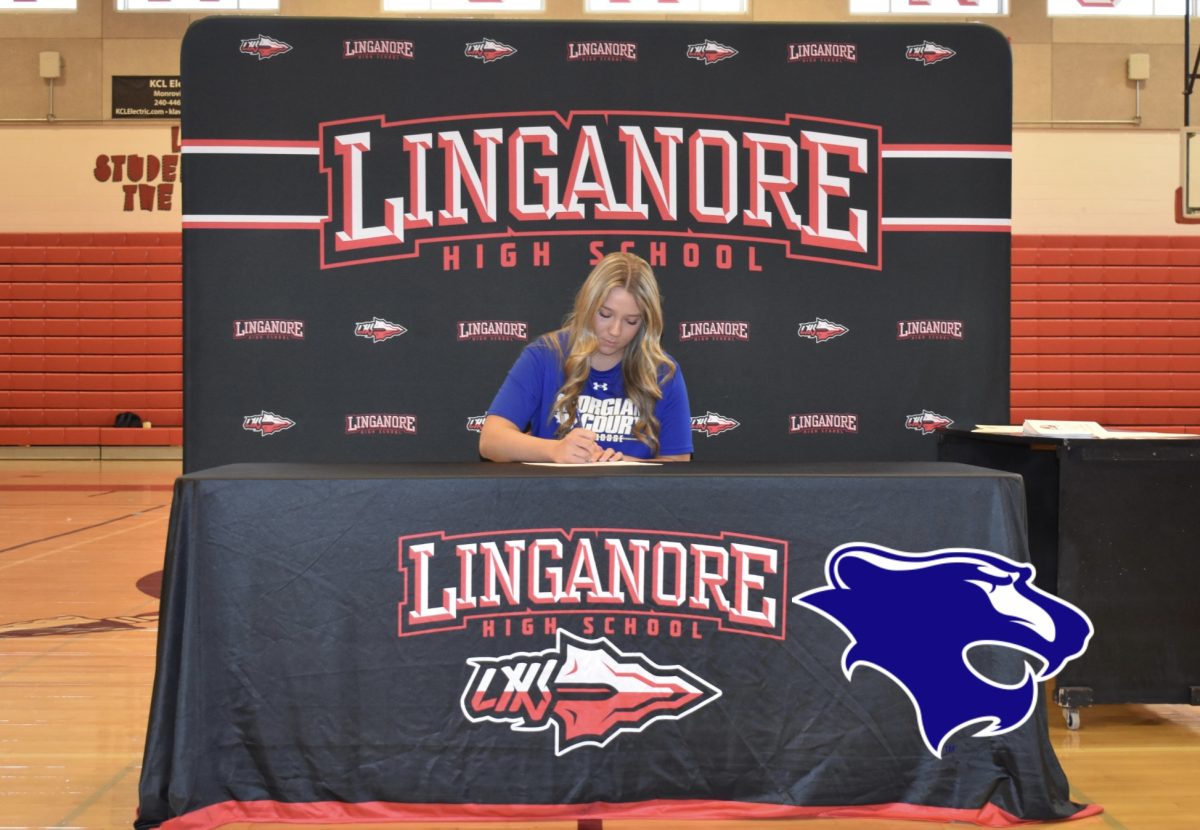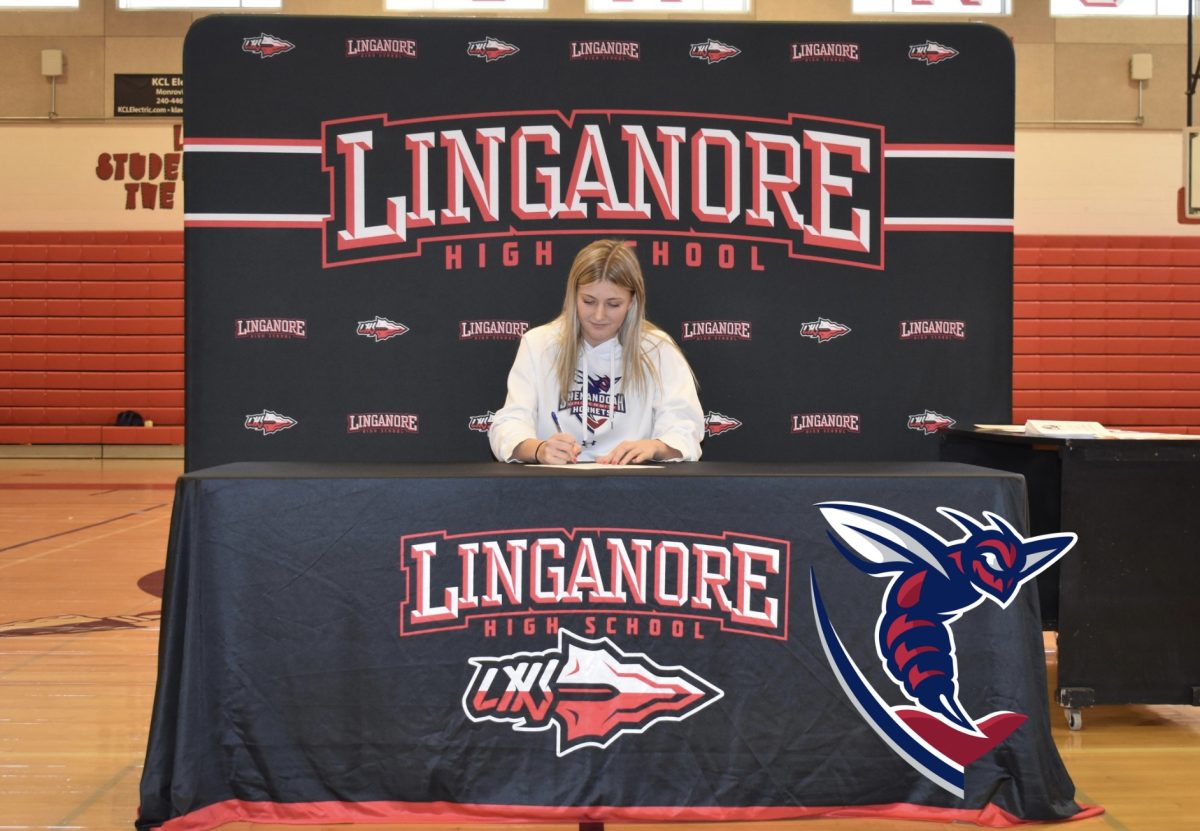Goalball: Proving you don’t need sight for sports
Sydney Rossman practices rolling a ball towards the defensive line.
November 25, 2019
Sports are generally considered to be an intense showcase of an individual’s athletic ability, but what happens when a key factor to success is taken away: sight?
Many may believe it is impossible for a visually impaired individual to participate in a sport, but goalball athletes all around the world are proving this common assumption wrong.
Slippery Rock University junior Sydney Rossman has no visual impairment, so she is required to wear a pair of dark goggles to restrict her vision when she plays the club sport, goalball, a game designed for the visually impaired. All athletes must wear these goggles to ensure that no one has an unfair advantage.
She rolls a basketball-sized ball with bells inside toward a three-person defense. It is silent so that Rossman can listen to the movements of the defenders, and so the defenders can listen to the location of the ball, which is coming at them at about 40 mph.
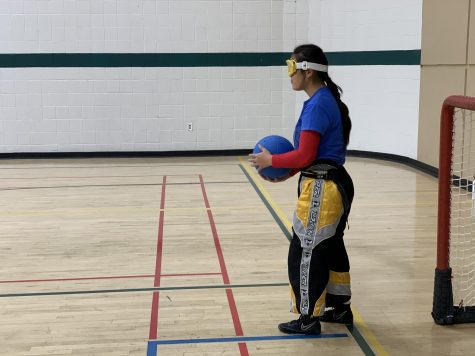
Goalball player Calliandra Bowman-Tomilson wears full equipment, including blinding eye shades.
Goalball is widely accepted as the most popular sport for the visually impaired or blind. During a game, three players from each team spread out along the goal line of their own goal. A team scores if the ball is rolled and crosses the line of their opponent’s goal.
The sport originated in 1946 as a way to keep blinded WWII veterans physically active. Since then, the sport remains a competitive event and a leisure activity for many visually impaired and blind individuals.
Goalball was initially introduced as a demonstration Paralympic sport in 1976 but was added as a full medal sport four years later in Arnhem, Netherlands. During the 2016 Rio Summer Paralympics, the U.S. Men’s goalball team won silver, falling to Lithuania’s fast pitches and sturdy defense.
The addictive nature of the sport allowed the Maryland School for the Blind to set a Guinness World Record in December 2018 by playing goalball for 25 hours and 30 seconds continuously.
Rossman is not setting world records, but she loves the game. Rossman, a 2017 Linganore graduate, always knew that she wanted to get involved with adapted sports.
“I have always been drawn to individuals who have disabilities, and I loved playing unified sports in high school, so when I found out I could take [a disability sports] minor at SRU, I was excited. I love how people have modified sports so that individuals who have disabilities can still have a chance to enjoy the sport.”
Through the Adapted Physical Activities (APA) minor at Slippery Rock University (SRU), Rossman learned about the goalball team.
“I was approached last semester to join the team, but I knew what goalball was, and I was intimidated. It was during the summer that I created goals for the rest of college, and one of them was to try to learn how to play as many adapted sports as I can. I decided to conquer my fear and join the team. I have not regretted this decision for a second,” said Rossman.
Brianah Misosky is a senior at SRU and the current captain of the goalball team. Misosky has been a member of the team for three years and is classified as a B3 athlete: legally blind.
“I got involved (age 9) in goalball after attending a sports camp for blind/visually impaired children — Envision Blind Sports. When I was younger, I would always look forward to [that] summer camp because I would get the opportunity to play goalball and other adaptive sports,” said Misosky.
Envision Blind Sports is a program that offers week-long sports camps every summer, a hockey program, outdoor activity opportunities, educational support, and more for visually impaired and blind individuals.
Although lack of sight makes daily tasks much more complicated, Misosky believes that a blind person can still do just as much as a person with 20/20 vision.
“People that are blind or visually impaired should have the opportunity to play on sports teams with other individuals without disabilities. [They] have the same ability to run, kick, swim, etcetera, as any other fully sighted person, and shouldn’t be held back from fully participating in any traditional sports. Goalball requires the same amount of dedication, physical strength, and coordination as any other sport would,” said Misosky.
Mason Semnisky is the co-captain of the goalball team and classified as a B2 athlete: the ability to recognize the shape of a hand up to visual acuity of 20/600.
“My favorite part about goalball is being able to play a sport where my vision does not affect my ability to play. Since all the players are required to wear eye shades, everyone is on an equal playing field,” said Semnisky.
Semnisky also attended the Envision Blind Sports Summer Camps.
Inclusion is the main goal of adapted sports, and goalball is just the first step in a widespread adaptation in other sports participated in all across the world.



